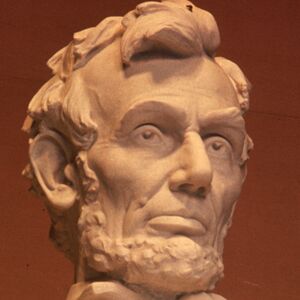
“A Law of History”
In A History of the English-Speaking Peoples, Winston Churchill wrote about Britain’s greatest military hero (before he was eclipsed by Churchill), Lord Nelson. He related the story of when the British Royal Navy had blockaded Europe with about 40 ships, preventing the French from crossing the Channel to attack. However, in the autumn of 1805, Napoleon massed his invasion barges at Boulogne, believing, as Churchill wrote, “that the British fleets were dispersed and that the moment had come for invasion.”
The decisive battle took place in the waters off Cape Trafalgar, Spain. Nelson was outnumbered and outgunned. At daybreak on October 21, “he saw from the quarterdeck of the Victory the battle line of the enemy consisting of an advance squadron of 12 Spanish ships … and 21 French ships of the line under Villeneuve.” Nelson signaled his captains to form for the attack in two columns. Then notice what he did.
“Nelson went down to his cabin to compose a prayer,” Churchill wrote. “‘May the great God whom I worship grant to my country and for the benefit of Europe in general a great and glorious victory. … For myself, I commit my life to Him who made me, and may His blessing light upon my endeavors for serving my country faithfully.’
“The fleets were drawing nearer and nearer. Another signal was run up upon the Victory, ‘England expects every man will do his duty.’
“A deathly silence fell upon the fleet as the ships drew nearer. Each captain marked down his adversary, and within a few minutes the two English columns thundered into action. … The Victory smashed through between Villeneuve’s flagships, the Bucentaure and the Redoutable. The three ships remained locked together, raking each other with broadsides. Nelson was pacing as if on parade on his quarterdeck when at 1:15 p.m. he was shot from the masthead of the Redoutable … in the shoulder. His backbone was broken, and he was carried below amid the thunder of the Victory’s guns. … In the log of the Victory occurs the passage, ‘Partial firing continued until 4:30, when a victory having been reported to the right Hon. Lord Viscount Nelson, K.B. and commander in chief, he then died of his wound.’”
This was one of the greatest sea battles in history. It saved the British Empire. It appeared that Captain Nelson was outnumbered and outgunned. But was he? He turned to God with a beautiful prayer. He committed his life to his Creator.
Nelson sacrificed his life for the British Empire, and God gave him the victory.
How important is such a faithful example from our history books? What is the lesson of this inspiring leader?
Will we learn from history? Or will America and Britain have to learn that God saves nations the hard way—by being defeated, trusting ourselves instead of God?
God Saved the Union
Most people don’t realize how close we came to dividing this nation forever in the American Civil War. The reason we didn’t is because one man was used by God to save the republic.
Abraham Lincoln deeply feared that the republic could collapse. He turned to God for help. Just feel the emotion in his words. Mr. Lincoln, in a proclamation on March 30, 1863, declared a day of prayer and fasting. “[I]t is the duty of nations, as well as of men,” he wrote, “to own their dependence upon the overruling power of God … and to recognize the sublime truth, announced in the Holy Scriptures and proven by all history, that those nations only are blessed whose God is the Lord. … We have been the recipients of the choicest bounties of heaven. We have been preserved, these many years, in peace and prosperity. We have grown in numbers, wealth and power as no other nation ever has grown,but we have forgotten God. We have forgotten the gracious Hand which preserved us in peace, and multiplied and enriched and strengthened us; and we have vainly imagined, in the deceitfulness of our hearts, that all these blessings were produced by some superior wisdom and virtue of our own” (emphasis mine throughout).
How many of our leaders today would declare a day of fasting and prayer? Do they have enough Bible knowledge to know what Mr. Lincoln meant about the Bible when he said that it was “announced in the Holy Scriptures and proven by all history, that those nations only are blessed whose God is the Lord”? Mr. Lincoln knew that was a “sublime truth.” Beautifully sublime.
This president knew that secular and Bible history prove that fact. And President Lincoln could have been even stronger. God blesses for righteousness and curses the sinners (Leviticus 26; Deuteronomy 28 and Deuteronomy 30:19).
In the midst of the Civil War, he said, “We have forgotten God”! He had the faith and political courage to rebuke his country. That is how America was saved! Can our college students learn from such history? The fate of our nations depends on it! Those students should be learning from Mr. Lincoln’s leadership and his faith!
We are now in a war against terrorism. Will our president tell us that we have forgotten God? We have! And it will take the faith of Abraham Lincoln to win this war. Without it, we will lose!
That is how important it is that we learn from our history.
